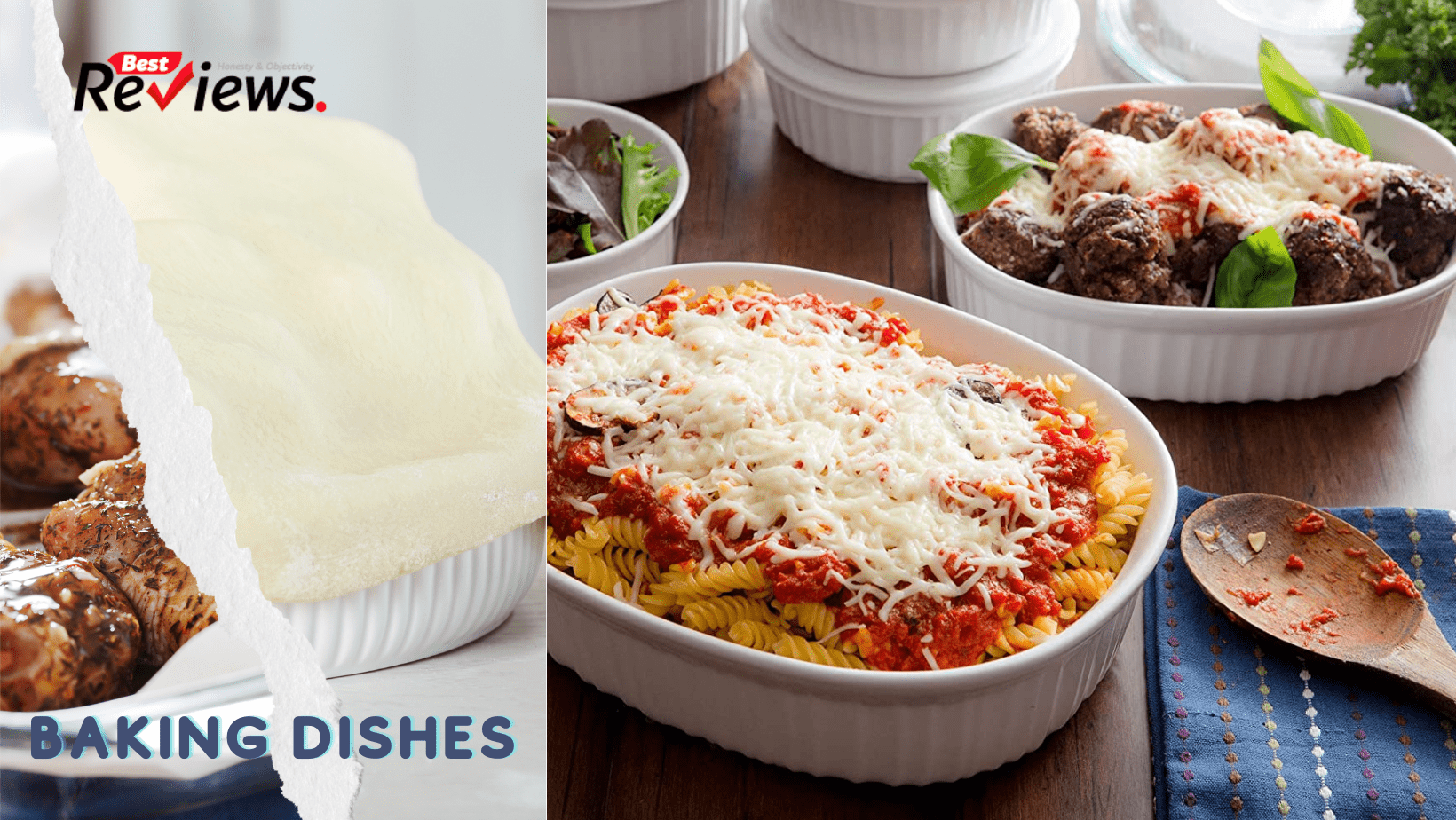You can make anything from warm apple pie to crisp roasted potatoes when you have a decent bakeware set. Quality bakeware sets, when combined with tried-and-true recipes, enable you to create some beautiful meals.
You may not know where to begin whether outfitting the first-time kitchen or replacing an outdated bakeware set. After all, there are a variety of sets available, each with its own set of pieces created from various materials, so how do you know which are the best bakeware sets for you?
WHAT’S INCLUDED IN A BAKEWARE SET?
To make matters even more confusing, there is no such thing as a standard bakeware set. Different sets include various component combinations. Your bakeware set may include all or any of the following. Consider what you want to bake and choose your settings appropriately.
Cake pans
Most bakeware sets include at least one set of round cake pans for layer cakes. Some sets may include a handful of pairs of varying sizes. Round cake pans may have springform bottoms or fixed or push-out bottoms. Some sets also include a loaf pan, which may be used to make loaf cakes, quick bread, and yeast loaves.
Baking trays and sheets
Baking trays are shallow-rimmed rectangular dishes These may be used to make anything from flat sponges for jelly rolls or opera cakes to frozen oven fries.
Baking sheets are similar to trays but have no rim. These are great for making cookies or transferring pizza dough to a pizza stone.
EXPERT TIP
Baking dishes
Baking pans feature deep sides, making them ideal for a variety of baking and roasting applications. While oval baking plates are available, most are square or rectangular. Most bakeware sets come with at least two baking bowls of varying sizes. Square dishes measuring eight by eight inches or nine by nine inches are great for brownies and other traybakes. Larger rectangular dishes are ideal for a variety of cuisines such as lasagna, casseroles, and roasted vegetables.

Muffin pans
Unless you infrequently make sweets, consider purchasing a bakeware set that includes at least one muffin pan. Muffins and cupcakes are popular sweet desserts, so most bakers put these pans to good use. A standard-size 12-cup muffin pan is the most typical addition to a bakeware set, but you may also buy gigantic muffin pans that create six huge muffins and micro muffin pans that make 24 little muffins.
Pie pans
If you like baking pies, a pie pan is an essential piece of bakeware. The most common size for pie pans is nine or ten inches. Tart and/or quiche pans may be included in certain sets.
Ramekins
Ramekins are tiny, circular baking plates that are perfect for individual desserts, soufflés, and pot pies. While not everyone will need ramekins, certain bakers do.
BAKEWARE SET MATERIALS
Aluminum
Pros: Aluminum bakeware sets are lightweight and reasonably priced. The dishes distribute heat efficiently, resulting in uniform browning.
Cons: Because aluminum bakeware is thin, it may deform over time. Some components have a nonstick coating that readily scrapes off.
Carbon steel
Pros: Carbon steel bakeware sets are heavy-duty and long-lasting. These sets are naturally nonstick and do not include any chemical coatings.
Cons: Carbon steel is not a good heat conductor. These bakeware sets may be rather pricey.
Cast iron
Pros: If properly maintained, cast iron bakeware will last a lifetime. It holds heat incredibly well and evenly cooks food.
Cons: Because cast iron is so heavy, full dishes might be difficult to manage. It is also rather pricey.
EXPERT TIP

Ceramic
Pros: Ceramic is a good insulator and cooks food nicely. It’s also visually appealing and works well as oven-to-table ware.
Cons: Ceramic bakeware sets often feature just baking dishes and ramekins, making them unsuitable for baking cakes.
Ovenproof glass
Pros: The vast majority of ovenproof glass bakeware is dishwasher safe. This bakeware helps avoid over-browning and burning by allowing you to see the food from all sides while it cooks.
Cons: Metal conducts heat better than ovenproof glass.
EXPERT TIP
BAKEWARE SET PRICES

Aluminum
Aluminum bakeware sets range in price from $15 to $80, depending on the number of pieces included.
Carbon steel
Small carbon steel bakeware sets with a few pieces start at about $15 to $20. Large, expensive sets may cost up to $100.
Cast iron
While tiny cast iron bakeware sets (with just a number of pieces) may be found for under $20, larger sets can cost several hundred dollars.
Ceramic
A ceramic bakeware set will cost you between $25 to $150, depending on the size, quality, and manufacturer.
Ovenproof glass
Sets of basic ovenproof glass cookware start from $20. Large sets might cost up to $100.
TIPS
- Check the size of the pieces in your set. Check that the components are the right size for your requirements. Larger dishes, for example, are required when cooking for a big household.
- Opt for durability. The most sturdy and long-lasting bakeware sets are expensive. A high-end set, on the other hand, may make financial sense in the long term since it may last 20 years, but a set half the price may only last five.
- Consider the food you like to bake. It’s nice to have a bakeware set with six different cake pans, but if you seldom bake anything other than savory cuisine, they’ll only collect dust.
- Think about replacements. If matching bakeware is essential to you, consider how simple it would be to replace any parts that were lost, damaged, or broken.
Pyrex is the most well-known manufacturer of ovenproof glass bakeware, however, there are numerous generic versions.
FAQ
Q. How should I care for my bakeware to keep it in good condition?
A. Taking proper care of your bakeware may extend its life. Follow these guidelines to maintain it in great shape.
- Never use metal tools on nonstick bakeware because metal might scratch the coating.
- Follow the washing and care directions. These differ according to the substance.
- To minimize rust or corrosion, be sure to fully dry your metal bakeware before storing it.
- Stacking bakeware may crack or damage more delicate pieces, so exercise caution while storing it.
Q. Can I put my bakeware in the microwave to reheat its contents?
A. Never put any kind of metal bakeware in the microwave. Most ceramic and Pyrex bakeware is microwave safe, but read the manufacturer’s instructions first.
Q. What other baking essentials do I need for a well-stocked kitchen?
A. Anyone who enjoys cooking or baking must have the proper instruments. If you don’t have the necessary tools and accessories, you may be caught off guard while attempting a new dish. While the list below is not complete, enthusiastic chefs and starting bakers should invest in the following baking supplies.
- Measuring cups and spoons
- Kitchen scale
- Mixing bowls
- Piping bag and assorted tips
- Cooling racks
- Flour sifter
- Cookie cutters
- Rolling pin
- Scoops
- Knives
- Whisk


















